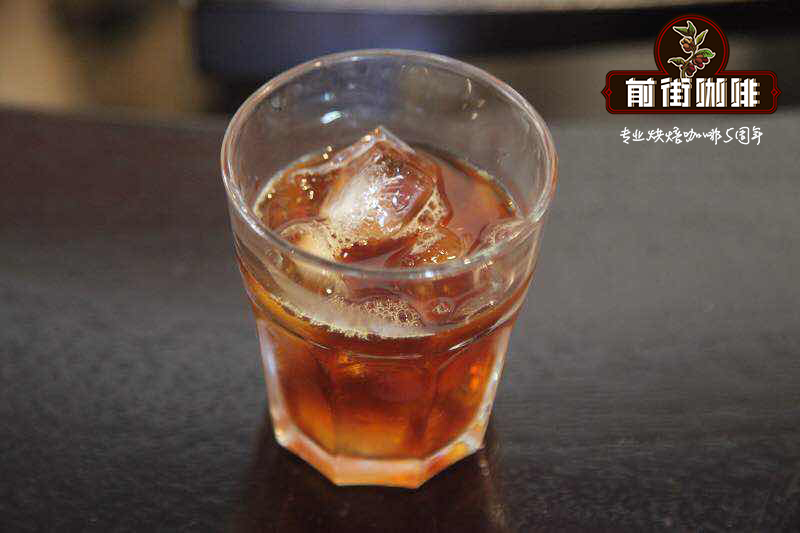How about robusta coffee | how about robusta coffee beans | how is the flavor and taste?
Professional coffee knowledge exchange more coffee bean information please follow the coffee workshop (Wechat official account cafe_style)

Coffee is now the first beverage consumed in the world, the amount and quantity of consumption are huge, coffee is also a trade commodity only for oil, and it is very popular all over the world. The consumption frequency of coffee abroad is very high. Basically, more than 3 cups are consumed every day, while the consumption frequency of coffee in China is relatively low, less than one cup per person a day. But many people like instant coffee, because they think instant coffee tastes sweet and easy to import, so instant coffee sales are very high in China. The price is low because of the low cost. Robusta is the main raw material of instant coffee. Do you know anything about robusta coffee?
When it comes to the types of coffee, we often talk about three major varieties of coffee, namely, Arabica, Robusta, and Liberia. In fact, the Robusta species is only a subspecies of the Canefa species (scientific name: Coffee Canephora), just as the rosette species is a subspecies of Arabica. Robusta was planted in the late 19th century and was found in the Congo region of Africa, so Robusta is also known as Congolese coffee.
The Robusta species was originally a mutant of the Congo species (scientific name: Coffee Canephora). It is mostly planted in the lowlands at an altitude of 200,600m. It likes a warm climate and does not require high rainfall. Robusta accounts for 25% of total coffee bean production, accounting for 35% of total coffee bean production, mainly grown in Indonesia, Vietnam, Brazil, Congo, Uganda and other places.
The bitter taste of robusta coffee will dominate, and the flavor is not pleasant. Excellent robusta coffee will show a good fragrance and sweetness of mugi-cha, while the common robusta coffee beans will have an obvious "Rob flavor". It is similar to the burnt smell of mugi-cha, accompanied by a fishy smell and musty smell.
The Robusta species have low altitude, short growth cycle time, no better flavor and sweetness, and are not as good as Arabica coffee; in addition, the caffeine content of the Robusta species is twice that of the Arabica species, resulting in its bitterness. Robusta has a weak acid and aromas of tree and wheat tea, which are usually used to mix Italian beans or are sent to factories to make instant coffee or canned drinks.
Robusta is usually planted in lowlands and areas with higher temperatures at 200-600 meters above sea level, and its coffee trees are more resistant to diseases and insect pests. Like a warm climate (the temperature is about 24-29 ℃), the requirement of rainfall is not high.
Robusta is recognized by many people because of its unique coffee flavor (some people call this unique flavor Luobu flavor). Robusta is heavily planted by coffee-producing countries because of its large output, twice the caffeine content of Arabica coffee, and for many reasons, such as no need to grow at high elevations and no shade trees. at present, coffee-producing countries account for more than 40% of the world's coffee production.
Robusta coffee is usually used for blending, because Luodou is rich in fat, as well as unique three-dimensional and mellow thickness, which can make Italian coffee more full-bodied and mellow, of course, there are also a lot of Robusta coffee, is used to make instant coffee.
Robusta flavor
Robusta has a weak sour taste and poor aroma, and it is easy to be bitter and astringent after deep roasting. It has more Creama and usually has the aroma of trees and wheat. High-quality Robusta beans are usually used to match Italian beans.
As the second place of coffee, Robusta has become the first choice for instant coffee manufacturers because of its large output, general flavor and strong disease resistance. Because of its high output and low price, instant coffee is the first choice for instant coffee producers to purchase a large number of goods to make instant coffee, because Chinese people's understanding of coffee is not high, and the sales of good coffee is not high, so instant coffee is loved by many non-coffee lovers because of its sweet taste.
Although boutique coffee has developed rapidly in recent years, the frequency of per capita consumption is still not high. Although instant coffee is a coffee beverage made of various ingredients, it has become the main consumption in China.
END
Important Notice :
前街咖啡 FrontStreet Coffee has moved to new addredd:
FrontStreet Coffee Address: 315,Donghua East Road,GuangZhou
Tel:020 38364473
- Prev

Arabica Flavor characteristics explain what Arabica variety is | what are the characteristics of Arabica coffee beans
Professional coffee knowledge exchange more coffee bean information please follow the coffee workshop (Wechat official account cafe_style) Arabica bean is one of the three major beans of coffee, accounting for 70% of the coffee consumption market, and is also one of the highest consumption coffee beans in the world. The reason why Arabica can become a coffee bean.
- Next

Do you know what mocha is? Is there any difference between fancy mocha and mocha?
Professional coffee knowledge exchange more coffee bean information please follow the coffee workshop (Wechat official account cafe_style) speaking of coffee, many people will probably think of fancy coffee for the first time! Because fancy coffee is mixed with espresso, it tastes smooth, mellow and delicious, so it is the coffee that many coffee lovers will choose when they go to coffee shops. Cappuccino, latte.
Related
- Beginners will see the "Coffee pull flower" guide!
- What is the difference between ice blog purified milk and ordinary milk coffee?
- Why is the Philippines the largest producer of crops in Liberia?
- For coffee extraction, should the fine powder be retained?
- How does extracted espresso fill pressed powder? How much strength does it take to press the powder?
- How to make jasmine cold extract coffee? Is the jasmine + latte good?
- Will this little toy really make the coffee taste better? How does Lily Drip affect coffee extraction?
- Will the action of slapping the filter cup also affect coffee extraction?
- What's the difference between powder-to-water ratio and powder-to-liquid ratio?
- What is the Ethiopian local species? What does it have to do with Heirloom native species?

